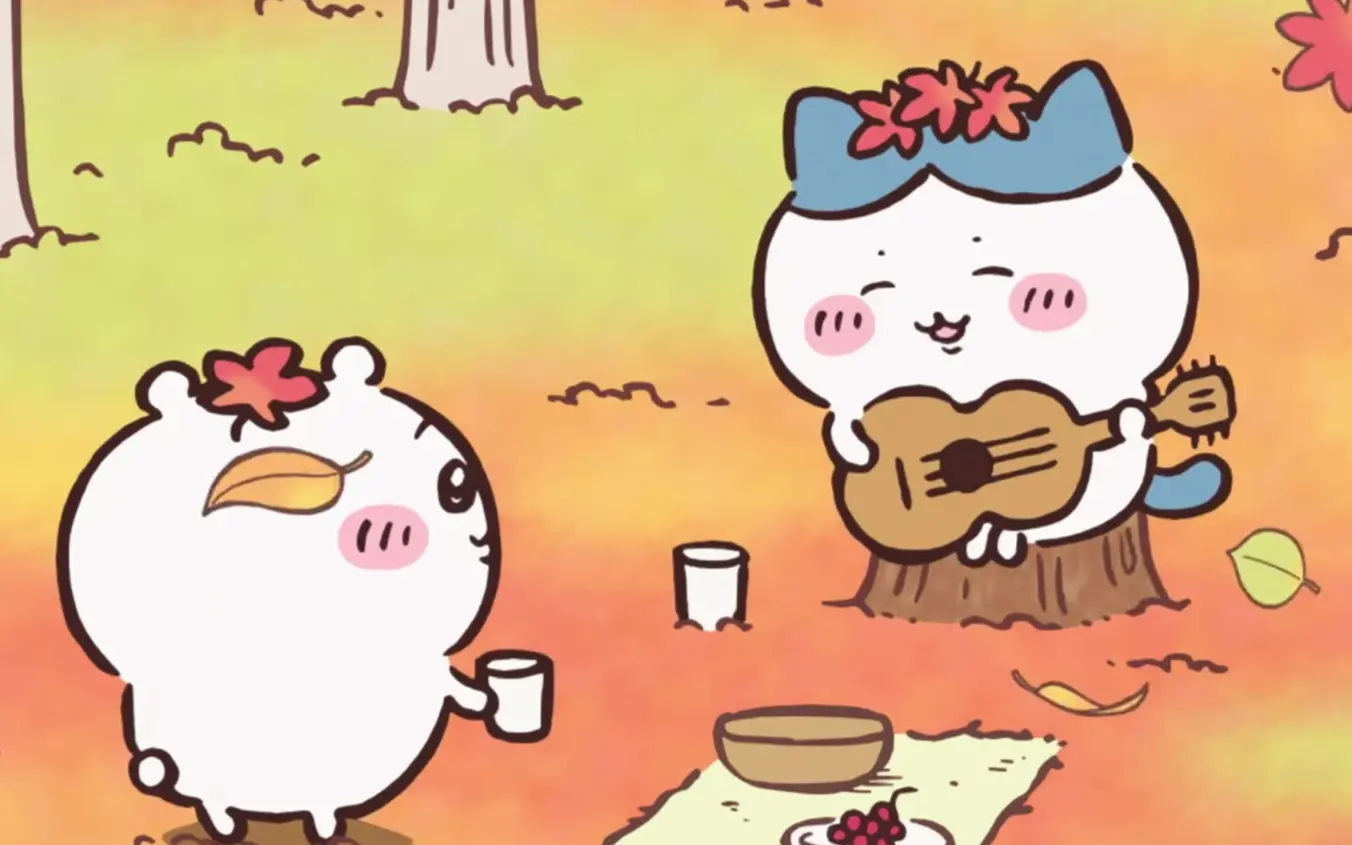
Created by Japanese manga artist Nagano, the serialized comic "Chiikawa" (meaning small and cute) and its animated adaptation have recently captured hearts across Asia. The story revolves around three main characters: the protagonist Chiikawa (a little white mouse), along with his friends Hachiware (a blue-headed kitten) and Usagi (a yellow rabbit). They reside in a whimsical world filled with magic and monsters, where, much like humans, they must toil - pulling weeds and battling creatures - to earn their daily bread. To ascend to higher realms for better rewards, these little cuties must first pass the "Weed-Pulling Certification Exam."
The storyline is simple, with each episode lasting only one or two minutes. To date, around 200 episodes have been uploaded, allowing the characters’ personalities to shine through. Chiikawa is timid and prone to tears, yet kind-hearted and lucky - his very house won in a lottery. Hachiware embodies loyalty and empathy, enjoys photography, and resides in a dilapidated cave. Meanwhile, the foodie Usagi is lively and spirited, often bursting with energy, and always the wise one in crucial moments. As the plot unfolds, their bond deepens, whether they’re studying for exams, battling monsters, escaping from prison, or savoring delicious meals together after work, lying on the grass to watch the sunset and witness the changing seasons.
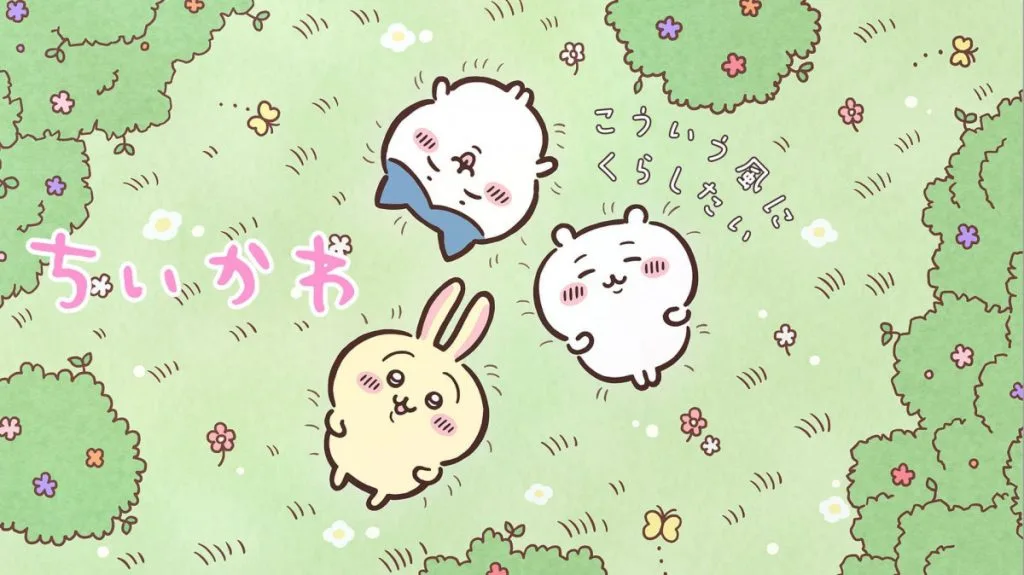
What is it about these simple yet imaginative plots that has sparked such a whirlwind across Asia? We chatted with Lydia, the owner of the "Chiikawa HK" on Instagram, who has over 50K followers (@chiikawa_852institute), to delve into the enchanting appeal of Chiikawa.
Writer: There are so many cute animations out there. What makes you particularly fond of Chiikawa?
Lydia: Because it truly resonates with viewers and is rich in emotion. Each character has a unique personality and soul, and the story has dark, complex, and thought-provoking elements. You can enjoy it casually or dive deep into analysis - either way works.
Writer: Which character is your favorite?
Lydia: I love Chiikawa. He’s so kind and pure. Though he’s timid, he becomes incredibly brave for his friends. His MBTI type is the same as mine; he’s like the inner child within me. I usually can’t express my emotions like he does (Chiikawa often cries), but I might be feeling that way inside. Seeing him feels like connecting with my own inner child, making it easy to relate to his feelings. The different characters in the animation represent everyone’s inner child, which is why they resonate so well. Whether they remind you of yourself or of who you aspire to be, there’s a character for everyone.
Writer: Have you gained any insights from watching Chiikawa?
Lydia: The little cuties have the potential to become monsters. The monsters attack the little ones, while the little ones fight back to earn rewards. However, Anoko (the large monster) despises its former weakness. After transforming into a monster and gaining strength, it gradually learns to love itself.
From this perspective, the little cuties’ battles against the monsters seem just, but if they didn’t fight, the monsters might not even want to harm them. This reflects the idea that there’s no absolute good or evil. Humans are inherently complex beings, and pursuing what we think is justice by attacking others can be quite arrogant. It’s essential to remind ourselves to avoid becoming that kind of monster.
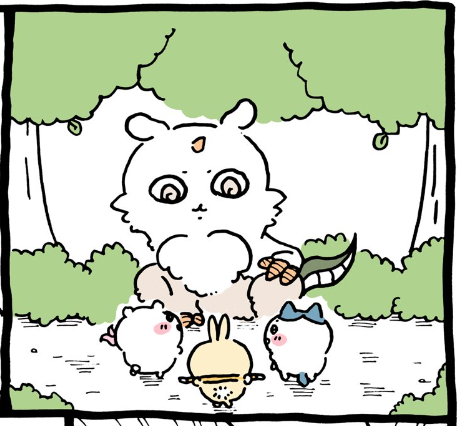
(The little cuties battle against Anoko.)
The adventures of these charming little creatures offer readers countless moments of delight, and their appeal goes far beyond mere appearance. A deeper reason may be found in how their journeys mirror our own experiences in society, our relationships, and our perceptions of ourselves. Let us delve into this further.
The Resonance Within Chiikawa
Echoes of Striving to Thrive in Society
Chiikawa captures the essence of many hardworking individuals. Just as the characters must pass exams to earn higher rewards, this reflects real-life professions such as accounting, education, and engineering, where qualifications depend on examination. Similarly, after a long day of battling, Chiikawa returns home to find a little beetle waiting for him, evoking the joy we feel when reunited with our family or pets. The story highlights the struggles faced by workers and students alike, allowing us to find connections in the characters' experiences and journeys.
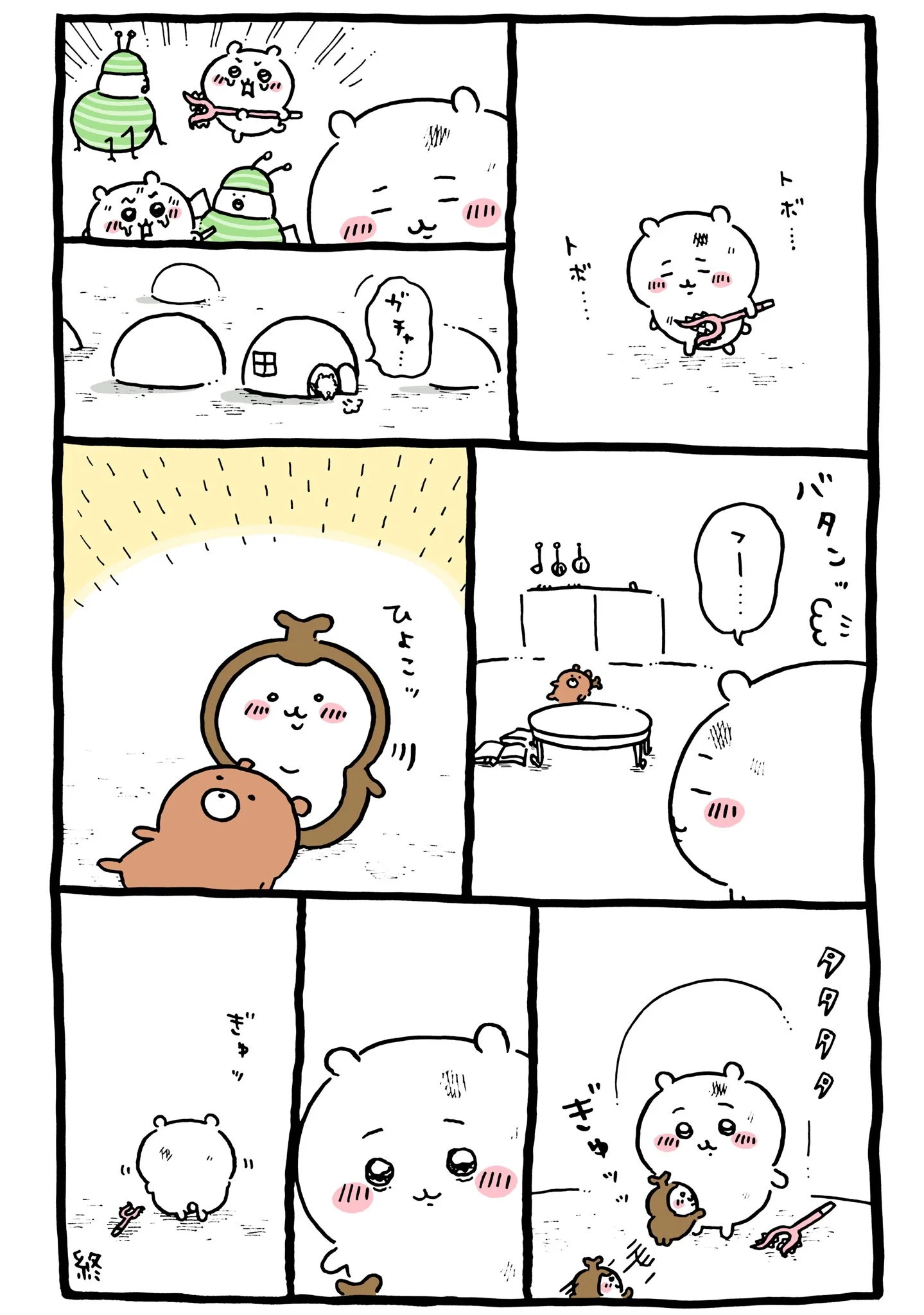
(After a long day at work, Chiikawa comes home to little beetle's hug. From @ngnchiikawa on X.)
Intimate Connections Drive Us to Become Our Best Selves
In a world teeming with monsters and challenges, the protagonists become each other's support, offering encouragement and trust. Finding companions to share the journey amid chaos evokes deep emotional connections for readers. Together, they endure hardships while savoring life’s simple pleasures - sharing canelé and curry rice, or watching the sunset - inviting readers to reminisce and rediscover the beauty in everyday moments. Additionally, seasonal symbols - such as hydrangeas in early summer and maple leaves in autumn - intertwine with the characters' adventures, gently reminding readers of the exquisite beauty that each season brings.
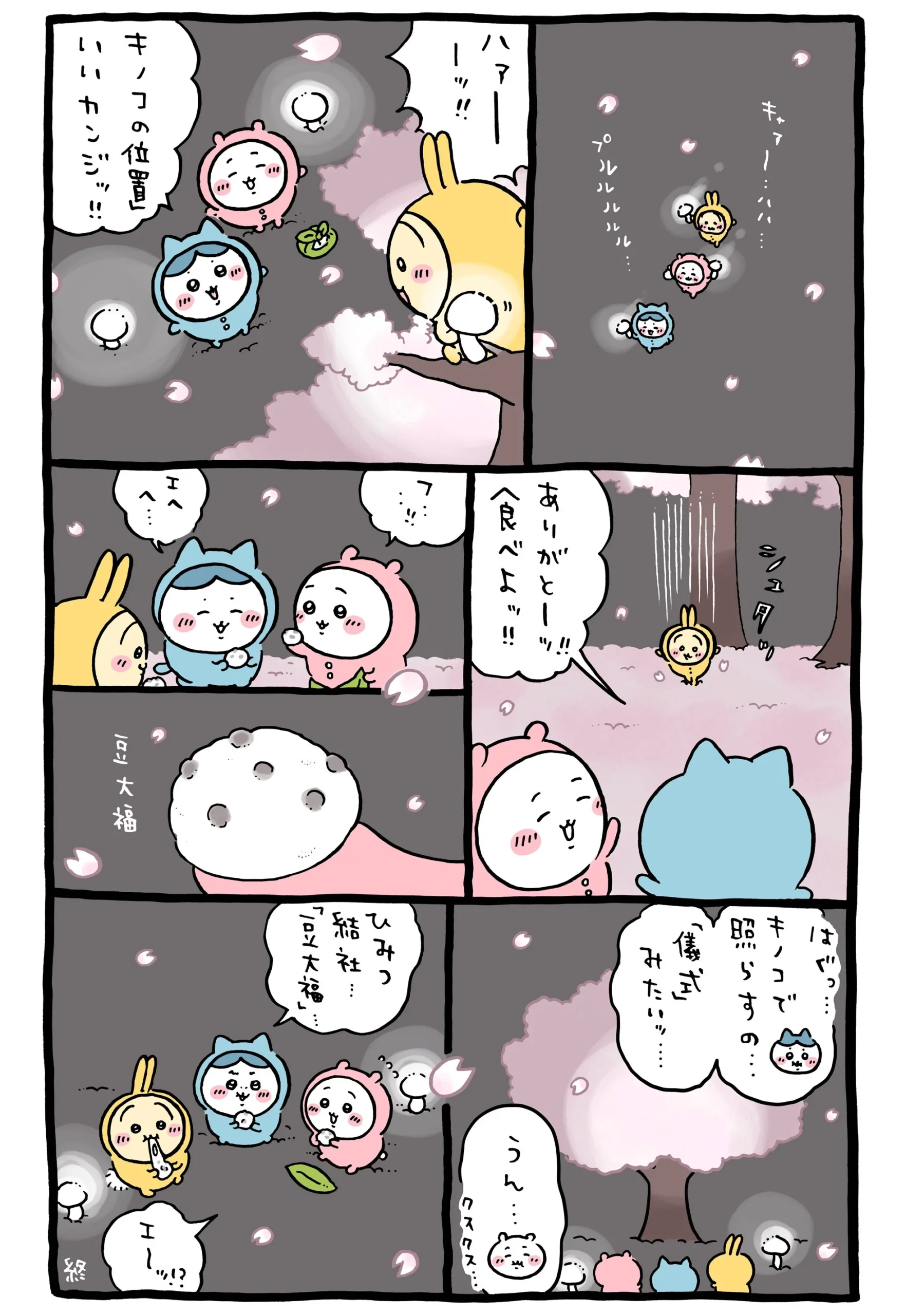
(Experiencing the beauty of changing seasons together is truly wonderful. From @ngnchiikawa on X.)
Embrace Your Journey, Imperfections and All
The popularity of "Chiikawa" may stem from the fact that we all harbor a little Chiikawa within us. At times, we feel fear and insecurity, sensing our own weakness as we encounter monstrous challenges that make us want to flee. Yet Chiikawa teaches us to embrace our imperfections, to acknowledge our setbacks, and to muster the courage to face our challenges. It inspires us to believe in our growth and to trust in our potential.

(After Chiikawa fails the exam, Hachiware keeps his promise and takes Chiikawa to enjoy his favorite ramen.
From @ngnchiikawa on X.)
Moreover, the diverse character settings in Chiikawa encapsulate various human traits, experiences, and aspirations. The characters that resonate with readers often embody their inner dreams. For instance, Usagi, who is playful and adventurous, disregards others' opinions, representing a spirit of unrestrained exploration and a commitment to authenticity.
Chiikawa reflects each of us as we navigate the complexities of work, livelihood, and relationships in society. We face moments of despair and encounter beautiful experiences or individuals that soothe our hearts. This connection weaves a narrative that resonates with our deepest emotions - like a mirror reflecting our struggles and triumphs, offering reassurance in times of uncertainty. Research indicates that films can effectively evoke both positive and negative emotions. Psychologist Ryan Niemiec highlights that watching movies and clips can enhance our satisfaction with the past, joy in the present, and optimism for the future. As a warm and comforting "iyashikei" work that explores the nuances of daily life, Chiikawa invites us to step into the whimsical world of these little creatures, allowing us to cherish the bonds formed through shared challenges and to find the courage to embark on new adventures with a reassuring pat on the back.
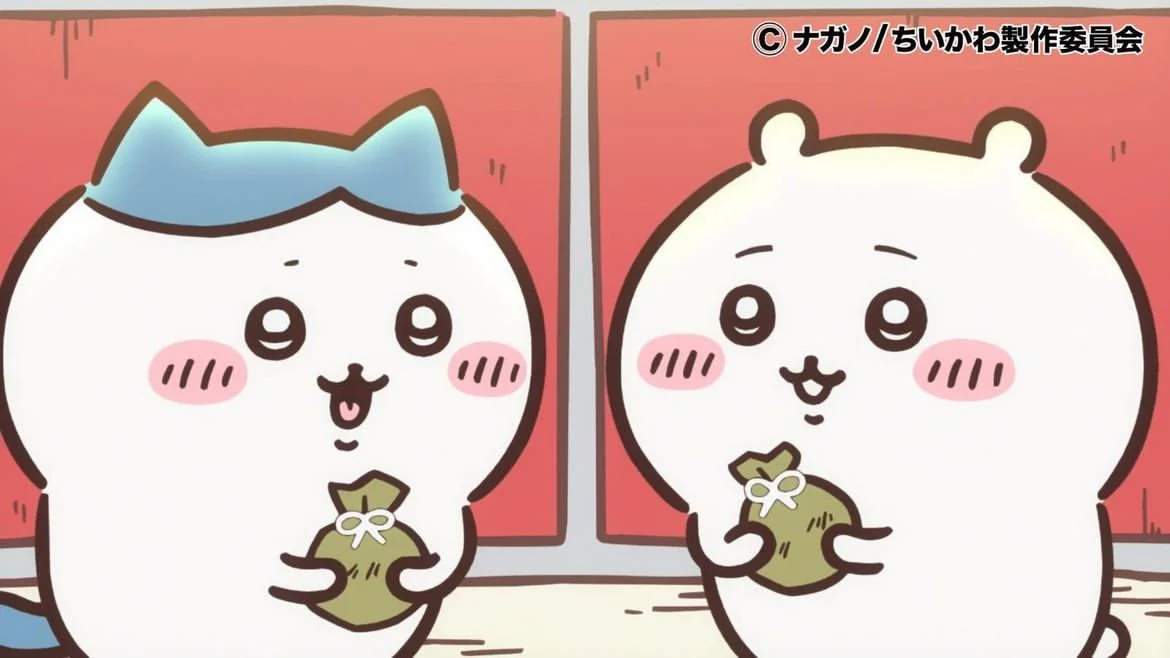
(Finally received their salary. From the Chiikawa Production Committee.)
References:
Fernández-Aguilar, L., Navarro-Bravo, B., Ricarte, J., Ros, L., & Latorre, J. M. (2019). How effective are films in inducing positive and negative emotional states? A meta-analysis. PloS one, 14(11), e0225040. https://doi.org/10.1371/journal.pone.0225040
Bryant, F. B., Smart, C. M., & King, S. P. (2005). Using the past to enhance the present: Boosting happiness through positive reminiscence. Journal of Happiness Studies: An Interdisciplinary Forum on Subjective Well-Being, 6(3), 227–260. https://doi.org/10.1007/s10902-005-3889-4
Niemiec, R. M., & Wedding, D. (2008). Positive psychology at the movies: Using films to build virtues and character strengths. Hogrefe Publishing.
Antonio Siciliano. (2022). Psychological Effects of Anime. Michigan Counseling and Referral Services. Retrieved from https://michigancrs.com/mental-health-and-media/psychological-effects-of-anime/
Tamar Chansky. (2022). How Savoring Tiny Moments Improves Health and Well-Being. Psychology Today. Retrieved from https://www.psychologytoday.com/intl/blog/worry-wise/202212/how-savoring-tiny-moments-improves-health-and-well-being

